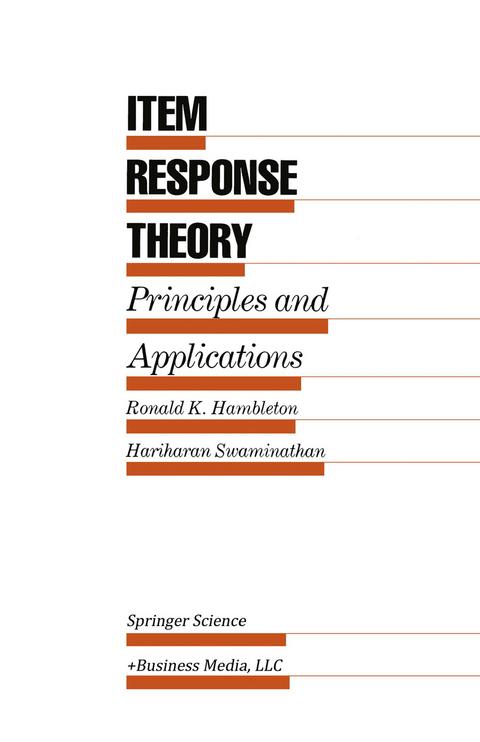
Item Response Theory
Principles and Applications
Seiten
2010
Springer (Verlag)
978-90-481-5809-6 (ISBN)
Springer (Verlag)
978-90-481-5809-6 (ISBN)
In the decade of the 1970s, item response theory became the dominant topic for study by measurement specialists. But, the genesis of item response theory (IRT) can be traced back to the mid-thirties and early forties. In fact, the term "Item Characteristic Curve," which is one of the main IRT concepts, can be attributed to Ledyard Tucker in 1946. Despite these early research efforts, interest in item response theory lay dormant until the late 1960s and took a backseat to the emerging development of strong true score theory. While true score theory developed rapidly and drew the attention of leading psychometricians, the problems and weaknesses inherent in its formulation began to raise concerns. Such problems as the lack of invariance of item parameters across examinee groups, and the inadequacy of classical test procedures to detect item bias or to provide a sound basis for measurement in "tailored testing," gave rise to a resurgence of interest in item response theory. Impetus for the development of item response theory as we now know it was provided by Frederic M. Lord through his pioneering works (Lord, 1952; 1953a, 1953b). The progress in the fifties was painstakingly slow due to the mathematical complexity of the topic and the nonexistence of computer programs.
1 Some Background to Item Response Theory.- 2 Assumptions of Item Response Theory.- 3 Item Response Models.- 4 Ability Scales.- 5 Estimation of Ability.- 6 Information Function and Its Application.- 7 Estimation of Item and Ability Parameters.- 8 Approaches for Addressing Model-Data Fit.- 9 Examples of Model-Data Fit Studies.- 10 Test Equating.- 11 Construction of Tests.- 12 Item Banking.- 13 Miscellaneous Applications.- 14 Practical Considerations in Using IRT Models.- References.- Author Index.
| Erscheint lt. Verlag | 6.12.2010 |
|---|---|
| Zusatzinfo | XVIII, 332 p. |
| Verlagsort | Dordrecht |
| Sprache | englisch |
| Maße | 140 x 216 mm |
| Themenwelt | Geisteswissenschaften ► Psychologie ► Test in der Psychologie |
| Sozialwissenschaften ► Pädagogik ► Bildungstheorie | |
| Sozialwissenschaften ► Pädagogik ► Schulpädagogik / Grundschule | |
| ISBN-10 | 90-481-5809-5 / 9048158095 |
| ISBN-13 | 978-90-481-5809-6 / 9789048158096 |
| Zustand | Neuware |
| Informationen gemäß Produktsicherheitsverordnung (GPSR) | |
| Haben Sie eine Frage zum Produkt? |
Mehr entdecken
aus dem Bereich
aus dem Bereich
Buch | Softcover (2023)
Springer (Verlag)
44,99 €
warum es gut ist, das Leben zu hinterfragen
Buch | Hardcover (2024)
Ullstein Buchverlage
24,99 €


